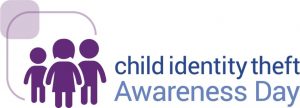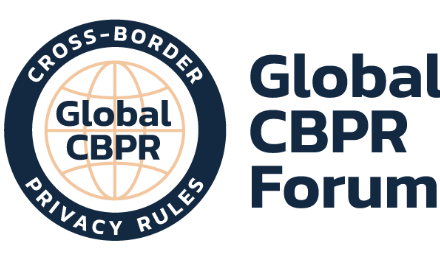Experian launches free service to detect child identity theft in response to the growing threat.
Imagine being a young adult trying to open a credit card or get a college loan, only to learn that your identity was stolen years earlier as a child. This scenario is becoming increasingly common. In fact, more than 1 million children were victims of identity theft in 2017*.
To help parents take an important first step in protecting their children, Experian® is offering a free, one-time Child ID Scan, a service that can detect possible child identity theft and fraud.
Experian designates September 1 as Child Identity Theft Awareness Day. #STOPCHILDIDTHEFT
The free scan checks if the Social Security number (SSN) for a child (under age 18) is associated with an Experian credit file. If a credit file is found, Experian’s Fraud Resolution team will assist the parent or legal guardian with the next steps. To use Experian’s free Child ID Scan, go to www.experian.com/childscan. For comprehensive, continued child identity monitoring, Experian IdentityWorksSM offers a Family Plan that monitors two adults and up to 10 children.
“A child’s SSN is like gold to identity thieves and a clean slate for criminals to do damage over possibly a long period of time,” said Michael Bruemmer, vice president of Consumer Protection at Experian. “We are vigilant when it comes to protecting people’s identities, and hope Child Identity Theft Awareness Day rallies communities and parents to take action. Our free service and educational content can be key resources, but we urge parents to be vigilant on an ongoing basis. If they aren’t, the consequences for their children can be damaging and long-term.”
Survey among victims shows severe impact
Victims of child identity theft experience serious adult challenges — sometimes lasting years. A recent Experian survey found that 59 percent of survey respondents had their credit report and credit score negatively impacted, while 52 percent were denied credit. More than one-third (34 percent) of victims surveyed said it cost them money to fix the issue, and almost 20 percent suffered relationship issues. Other key findings:
- Prime target years:On average, victims surveyed believe identity theft occurred when they were 12 years old — and even worse, almost half (45%) didn’t discover the theft until they were between the ages of 16 and 18, when they were most likely getting a first job or starting to apply for credit.
- Child ID theft revealed:More than half (51%) of victims surveyed discovered it themselves, primarily when they applied for credit as an adult or when they received a bill or credit card in the mail. Unfortunately, 52% were denied credit at some point when they applied due to the theft.
- Child ID theft continued:The initial discovery of identity theft is just the beginning for victims. One out of 4 survey respondents are still dealing with issues more than 10 years after the fact.
- Feeling the effects:The emotional impact of child identity theft is also severe: 35% of victims surveyed have sought professional help in dealing with related stress, anxiety, anger or depression related to the theft. Sixty-eight percent said they are fearful it could happen to them again, while 65% are angry about the credit roadblocks they have faced.
How you can obtain support and join the cause
The Identity Theft Resource Center (ITRC) is available to educate parents about the signs to watch out for and how to resolve fraud. The ITRC call center is open Monday through Friday from 9 a.m. to 8 p.m. Eastern time. On Sept. 1, in support of Child Identity Theft Awareness Day, the call center will be available from 12 p.m. to 3 p.m. Eastern time to answer child identity theft questions. To contact ITRC, call toll-free 1 888 400 5530. For a useful tool that outlines what to do if you or your child is a victim of identity theft, download a free wallet card here.
“We hear first-hand the impact of child identity theft, as both parents and adults who were victimized as children call us seeking help. Unfortunately, many don’t become aware until it’s too late,” said Eva Velasquez, chief executive officer at ITRC. “We hope that by shining a spotlight on this issue, families will become more engaged in the conversations created by Child Identity Theft Awareness Day. We are delighted that Experian asked us to join its effort to raise awareness around the scale and impact child identity theft can have on kids and their futures.”
Experian encourages all consumers and parents to join us for a Twitter chat on the topic on Wednesday, Aug. 29 at 3 p.m. Eastern time, using the hashtags #CreditChat and #StopChildIDTheft. For more information about the chat, click here.
Consumers can also find information and engage in conversation on our Facebook page and via Twitter: @Experian_US.
Visit our blog at www.experian.com/education for information and protection tips about child identity theft and other identity theft topics.
About the survey
The online survey was conducted by Experian from June 25 through July 16, 2018, among 738 adults who are 25 years of age or older and reside in the United States. This online survey is not based on a probability sample; therefore, no estimate of theoretical sampling error can be calculated.
About Experian
Experian is the world’s leading global information services company. During life’s big moments — from buying a home or a car, to sending a child to college, to growing a business by connecting with new customers — we empower consumers and our clients to manage their data with confidence. We help individuals to take financial control and access financial services, businesses to make smarter decisions and thrive, lenders to lend more responsibly, and organizations to prevent identity fraud and crime.
We have 16,500 people operating across 39 countries and every day we’re investing in new technologies, talented people and innovation to help all our clients maximize every opportunity. We are listed on the London Stock Exchange (EXPN) and are a constituent of the FTSE 100 Index.
Learn more at www.experianplc.com or visit our global content hub at our global news blog for the latest news and insights from the Group.
Experian and the Experian marks used herein are trademarks or registered trademarks of Experian Information Solutions, Inc. Other product and company names mentioned herein are the property of their respective owners.
*2018 Child Identity Fraud Study, Javelin Strategy & Research
Source: Experian



























